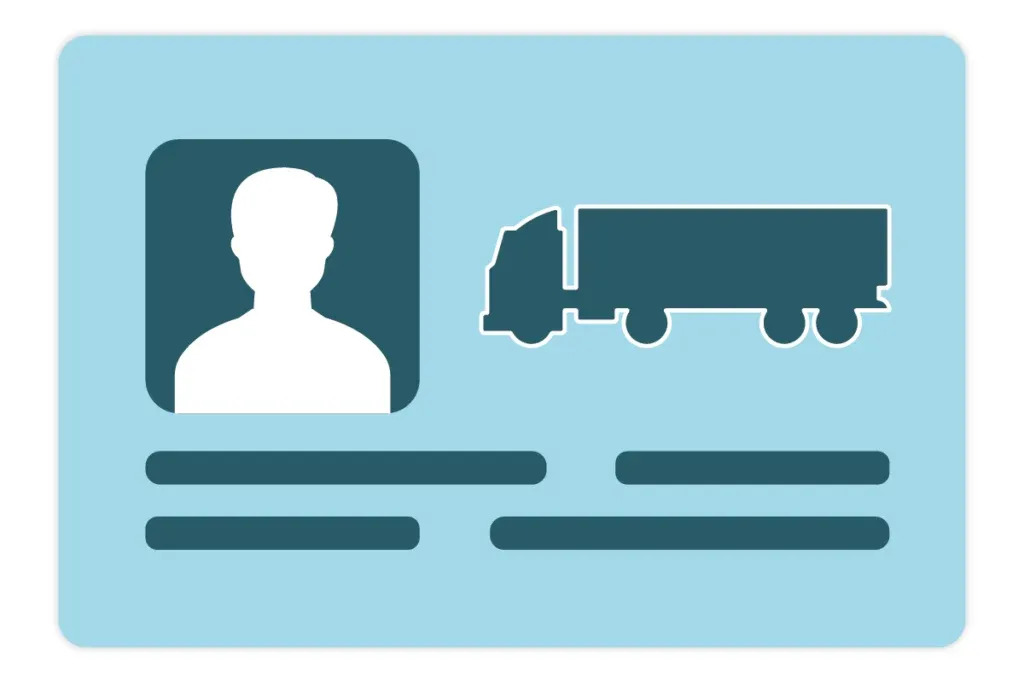An operator’s licence is required to legally operate heavy vehicles transporting goods or containers. The licence is issued by an independent commercial road transport industry regulator, usually a traffic commissioner. The traffic commissioner also enforces the licence and can hold operators responsible for failing to meet expected standards.

A logistics company or business that wants to bring logistics operations in-house requires an operator’s licence. If the business is expected to use vehicles of over 3.5 tonnes to carry goods for commercial purposes, an operator’s licence is a legal requirement, whether the carriage of goods is for hire or reward. An operator’s licence is applied for in the name of the company or vehicle user. An operator’s licence can be for goods or public service vehicles. Here is a guide on the different types of operator’s licences and the application requirements.
What is an Operator’s Licence?
An operator’s Licence is a licence that is issued by… and entitles a company to… The license is issued online/on paper.. and contains the following data…
Businesses require an operator’s licence if they have vehicles above the maximum authorised mass and use them to carry goods on public roads for trade. Even if a business hires short-term rentals for transporting commercial goods, the company must possess an operator’s licence. The holder is the user of the vehicle, which can be:
- Operators who hire or control drivers.
- The driver or person who owns or leases a goods vehicle for transportation.
Some licence types include:
- Standard national licence: The licence allows operators to carry goods for hire or reward in the UK. Operators with a standard licence can use it to carry their goods nationally and abroad. To obtain a licence, operators must satisfy professional competence requirements and have a good reputation.
- Standard international licence: Operators can carry goods for UK and international journeys with a standard international licence.
- Restricted licence: A restricted licence allows operators to carry goods within the UK and European Union. Operators with a restricted licence can produce products and use their vehicles to transport the items. Restricted items can also be used to transport equipment and tools to a job.
Vehicle Operator Requirements
For an operator to get a licence, they must satisfy traffic commissioners and meet the following requirements:
- The applicant must be established in the UK. That means the operator should have business premises where the operator keeps their core business documents. As a result, a PO Box or third-party address cannot be used for correspondence on standard licences.
- The operator needs a transport manager with a good reputation and professional competence.
- The licence holder or operator requires access to a vehicle. That means an operator should own one vehicle or have a contract permitting them access to a vehicle for hire.
Operators applying for a standard licence should meet additional requirements, including the following:
- Having good repute and fit to hold a licence.
- Have good financial standing and money to run the business.
- Have a suitable facility or arrangement for maintaining vehicles.
Applicants of an operator’s licence don’t need to own or hire a vehicle, especially if the licence is granted for seasonal work. However, for restricted licences, a formal agreement to hire or secure access to a vehicle should be in place.
Operator’s Licence: Business Requirements
Individuals applying for an operator’s licence need a base of operations to keep the goods vehicles away from public roads. The operating centre requires off-street parking for vehicles and trailers. During the application for a licence, the applicant needs to provide the address of the operating centre and show evidence that they are entitled to use it. Applicants should also satisfy the traffic commissioner by proving that the operating centre has safe access, is big enough, and is in an environmentally acceptable location.
How to Apply for an Operator’s Licence
When an individual meets the requirements, they can apply for a new operator licence or vary an existing one.
Operators can apply for the following:
- A heavy goods vehicle (HGV) operator’s licence
- A public service vehicle (PSV) operator’s licence
- Interim operator licence
Operators applying for a new licence should complete the form online and pay the relevant application fee to the Traffic Area in which the operating centre is located. It is also mandatory to advertise the application in the local newspaper where the operating centre is located. Doing this gives other businesses a chance to make a representation against the licence application.
Applicants should submit their application at least 9 weeks before the date they require the licence. It gives sufficient time to the traffic commissioner in order to complete inquiries and grant operator licences.
What if an Operator Needs To Open Urgently?
Operators who urgently require a licence can write to the Traffic Area Office and provide reasons why they need it urgently. The traffic commissioner will issue an interim licence to operators who apply for a full licence. However, operators should refrain from making long-term commitments with an interim licence.
Conclusion
The main purpose of an operator’s licence is to ensure the safe and proper use of goods vehicles and protect the environment around operating centres. The application process for an O licence is straightforward, and applicants who satisfy the minimum requirements can easily qualify for the licence.
Sources:
- https://www.mvcommercial.com/pages/how-to-get-an-operators-licence
- https://www.gov.uk/apply-vehicle-operator-licence
- https://www.nidirect.gov.uk/articles/goods-vehicle-operator-licensing-licence-applications
- https://www.gov.uk/manage-vehicle-operator-licence
Disclaimer
This content is provided for informational purposes only and is not meant to be an endorsement or representation by FleetGO.com or any other party. This information may contain inaccuracies or typographical errors, despite our efforts to ensure accuracy. FleetGO.com accepts no responsibility or liability for any errors or omissions, and is not responsible for the contents of any linked website or any link contained in a linked website. Please refer to our full disclaimer for more details.


